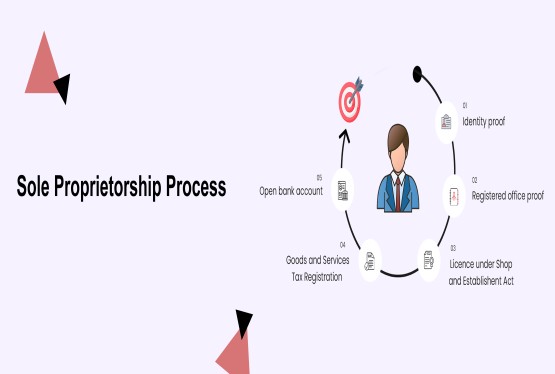A Limited Liability Partnership (LLP) is a unique business structure that blends the flexibility of a traditional partnership with the advantages of limited liability like a company. It is a separate legal entity, meaning it can operate independently of its partners, and changes in partners do not affect the existence of the LLP. Introduced through the Limited Liability Partnership Act, 2008, LLPs have gained significant popularity in India, especially among professionals and small to medium enterprises. The ease of formation, reduced compliance burden, and limited liability protection make LLPs an attractive choice for entrepreneurs.
Checklist for LLP Registration
To register an LLP, the following essential requirements must be fulfilled. Firstly, there must be a minimum of two partners, and at least one of them must be a resident of India. All partners must have a Digital Signature Certificate (DSC) for signing the forms and a Director Identification Number (DIN) for identification under the LLP Act.
Next, a unique name should be chosen for the LLP which is not identical or similar to any existing LLP, company, or trademark. Partners must decide the capital contribution, which can be in the form of cash, property, or services. An LLP Agreement should be prepared, defining the profit-sharing ratio, duties, rights, and roles of each partner. Proof of the registered office address is also necessary, such as a recent electricity bill, rent agreement, and No Objection Certificate (NOC) if rented
Documents Required for LLP Registration
The required documents are divided into two categories: documents related to partners and documents related to the LLP.
Documents of Partners
Each partner must submit a self-attested copy of their PAN card or any government-issued identity proof. Along with that, an address proof like passport, Aadhaar card, voter ID, or driver’s license is needed. Additionally, a residence proof such as a bank statement, telephone bill, electricity bill, or gas bill (not older than 2-3 months) should be submitted, which must clearly show the partner’s name matching the one on the PAN card. Each partner must provide a valid email address and mobile number, along with a passport-size photograph with a white background.
If a partner is a foreign national or NRI, they must submit a notarized passport and other documents attested by the Indian Embassy or appropriate foreign authority. A duly signed consent form (Form-9) must be filed by designated partners, and a subscriber sheet attested by a professional like a CA, CS, or lawyer must also be submitted.
Documents of LLP
The LLP must provide proof of its registered office address, such as a recent utility bill (electricity, water, or telephone bill). If the premises are rented, a Rent Agreement and a No Objection Certificate (NOC) from the landlord must be provided. These documents must be filed within 30 days of incorporat
Benefits of LLP Registration
A Limited Liability Partnership (LLP) is increasingly becoming the preferred form of business structure for startups, professionals, and small businesses due to its unique blend of flexibility, legal protection, and simplicity. Below is a detailed explanation of the benefits of forming an LLP in India:

Separate Legal Entity
An LLP is recognized as a legal entity that is separate from its partners. This means the LLP itself can own property, enter into contracts, open bank accounts, and even sue or be sued in its own name, without involving the personal names of the partners. The continuation of the LLP is not affected by any changes in the partnership, such as the resignation, retirement, or death of a partner. This legal separation ensures that the business has perpetual succession and continues to exist even when partners change.
Limited Liability Protection
One of the major reasons for choosing the LLP structure is the limited liability it provides to its partners. In an LLP, the liability of each partner is limited to the extent of their capital contribution. This means that the personal assets of the partners are protected, and they are not personally liable for the debts and obligations of the LLP. Moreover, one partner is not held responsible for the negligence or misconduct of another partner, which is a major drawback in traditional partnership firms.
No Minimum Capital Requirement
Another major benefit of forming an LLP is that there is no minimum capital contribution required to start the business. Unlike a private limited company, where there might be expectations of a certain initial capital, an LLP can be formed with any amount of capital, whether small or large. The capital contribution can be in the form of tangible or intangible assets, cash, or services rendered by the partners. This flexibility makes LLPs especially appealing for startups and small businesses looking to minimize initial costs.
Low Cost of Formation and Maintenance
Setting up and running an LLP is cost-effective compared to a company. The incorporation cost of an LLP is relatively lower, and the overall cost of compliance and maintenance is minimal. LLPs are not required to hold frequent board meetings or general meetings, nor are they required to maintain extensive statutory records. This significantly reduces the operational and professional costs involved in managing the entity on an ongoing basis.
Flexibility in Management
LLPs offer great flexibility in internal management, allowing the partners to regulate their business operations through a mutually drafted LLP Agreement. The agreement clearly outlines the roles, responsibilities, decision-making powers, and profit-sharing ratios of each partner. This internal flexibility is not constrained by rigid company law provisions, enabling the partners to structure their operations in a way that best suits their business model and mutual understanding.
Easy to Form and Operate
The process of forming an LLP is straightforward and streamlined. With just two designated partners (at least one being a resident of India), a business can be incorporated as an LLP. The entire registration process is carried out online through the MCA (Ministry of Corporate Affairs) portal. Since LLPs are easier to manage and require fewer legal formalities than companies, they are especially ideal for professionals such as lawyers, architects, consultants, and freelancers who wish to formalize their practice or partnership.
Lesser Compliance Burden
An LLP is governed by the LLP Act, 2008, which requires far fewer compliance obligations compared to the Companies Act, 2013. LLPs are not required to hold board meetings, annual general meetings, or maintain detailed registers. The main annual filings are Form-8 (Statement of Accounts and Solvency) and Form-11 (Annual Return), making the compliance process less time-consuming and cost-efficient. Additionally, a statutory audit is only required if the annual turnover exceeds Rs.40 lakhs or the contribution exceeds Rs.25 lakhs, which is not mandatory for most small LLPs.
Unlimited Number of Partners
Unlike companies where there is a cap on the number of shareholders (200 for a private limited company), LLPs have no upper limit on the number of partners. This provides an opportunity for the business to scale up operations and add more partners without worrying about statutory limitations. The structure supports the gradual inclusion of professionals, investors, or contributors as partners, promoting collaborative growth.
Tax Advantages
LLPs also enjoy several tax-related benefits under Indian law. Unlike companies, LLPs are not subject to Dividend Distribution Tax (DDT). The profits distributed among the partners are tax-free in their hands. LLPs are taxed at a flat rate of 30% on profits, and they are allowed to claim deductions and exemptions applicable under the Income Tax Act. Moreover, LLPs are not required to pay additional income tax on capital gains at the time of distribution to partners, thereby ensuring better tax efficiency.
Better Credibility and Legal Recognition
Registering your business as an LLP gives it a formal and professional identity. Compared to unregistered partnerships or sole proprietorships, LLPs enjoy higher credibility in the eyes of clients, banks, investors, and government agencies. This credibility can prove important while applying for loans, bidding for government tenders, entering into large contracts, or building trust with customers. The legal structure gives assurance that the entity is governed by rules and has accountability mechanisms in place.
Global Acceptance
LLPs are not only recognized in India but also respected internationally. This makes them suitable for ventures that aim to deal with global clients, raise international investments, or enter into cross-border collaborations. Moreover, foreign nationals and NRIs are allowed to become partners in an LLP, subject to FEMA (Foreign Exchange Management Act) regulations, making it an ideal vehicle for foreign direct investment (FDI) in service-based sectors.
Annual Compliances of LLP
Every LLP is required to fulfill certain annual compliance obligations to remain legally active and avoid penalties:
Filing of Annual Return (Form-11)
Each LLP must file Form-11 with the ROC within 60 days from the end of the financial year, i.e., by 30th May. This form includes details about the management structure, contribution of each partner, and changes in partnership if any.
Filing of Statement of Accounts and Solvency (Form-8)
LLPs must file Form-8 every year by 30th October, which includes a declaration of solvency and a summary of financial statements, including assets, liabilities, and income for the year. This must be digitally signed by designated partners and a practicing professional such as a CA or CS.
Audit Requirement
LLPs must get their accounts audited by a Chartered Accountant if the annual turnover exceeds Rs.40 lakhs or if the capital contribution exceeds Rs.25 lakhs. This ensures transparency and financial accountability.
Penalty for Non-Compliance
Failure to file Form-8 and Form-11 on time leads to a penalty of Rs.100 per day, which continues until the date of filing. These penalties can accumulate into large sums if ignored, so timely filing is important.
Income Tax Return Filing
Being a separate legal entity, the LLP must file Income Tax Return (ITR-5) each year. If the LLP is not subject to audit, the due date is 31st July. In case the accounts are audited, the due date is 30th September. Even if the LLP does not conduct any business during the year, a NIL return must still be filed to comply with the Income Tax Act.
Annual Filing for Financial Year 2020-21
LLPs that were incorporated on or before 30th September 2020 had to complete their financial filings for F.Y. 2020-21 by the due date. However, LLPs incorporated between 1st October 2020 and 31st March 2021 had the option to file their financials in the next year by preparing statements for 18 months, covering both financial periods.
LLP Registration Process
Registering an LLP in India is relatively easy, cost-effective, and involves fewer procedural requirements compared to companies.
Obtaining Digital Signature Certificate (DSC)
The first step in LLP registration is obtaining a Class III Digital Signature Certificate (DSC) for the designated partners. Since all LLP forms are filed online, a digital signature is necessary to verify and submit the forms electronically. This is a mandatory requirement, and the DSC must be acquired from a government-approved certifying authority.
Applying for Director Identification Number (DIN)
After obtaining the DSC, each designated partner must apply for a Director Identification Number (DIN) by submitting Form DIR-3 to the Registrar of Companies (ROC). DIN is a unique identification number allotted by the Ministry of Corporate Affairs and is necessary for anyone intending to be a designated partner in an LLP.
Reservation of LLP Name
Once the DIN is obtained, the next step is to reserve a unique name for the LLP. This is done through the LLP-RUN (Reserve Unique Name) form. The proposed name should be distinct and should not resemble any existing company, LLP, or trademark. The Registrar will verify the availability of days).
The name, and if it is found acceptable, the name will be reserved for a limited time (generally 20 Filing for Incorporation (Form FiLLiP)
After name approval, the Form FiLLiP (Form for incorporation of LLP) must be submitted to the ROC along with the necessary documents and partner details. This form includes information such as the LLP’s proposed name, partner details, registered office address, and capital contribution. Once verified, the Registrar issues the Certificate of Incorporation, confirming the creation of the LLP.
Filing LLP Agreement (Form-3)
Within 30 days of incorporation, the LLP is required to file Form-3 to submit the LLP Agreement. This agreement is a legal document that outlines the mutual rights, duties, and obligations of the partners and the LLP. It must be executed on stamp paper, and the stamp duty varies from state to state. Timely filing of this agreement is essential for the proper functioning and legal validity of the LLP.
Applying for PAN and TAN
After incorporation and filing of the LLP agreement, the LLP must apply for a Permanent Account Number (PAN) and a Tax Deduction and Collection Account Number (TAN). These are essential for fulfilling tax-related compliances and for opening a bank account in the name of the LLP.
How Can Compliance Calendar Help?
Compliance Calendar LLP is a trusted name in the field of business compliance and registrations. Our team of experienced professionals can guide you through the entire LLP registration process from name approval and document preparation to incorporation and post-incorporation filings. We also offer complete compliance support to ensure your LLP remains updated with all legal obligations.
Our experts help prepare and review all documentation, track filing deadlines, and provide ongoing support for annual filings and tax returns. Whether you are a startup, professional service provider, or growing enterprise, Compliance Calendar LLP ensures your compliance needs are met timely and efficiently.
For any help related to LLP registration and compliance, you can contact us at: Email: info@ccoffice.in WhatsApp/Call: +91-9988424211
FAQ
Q1. What is an LLP and how is it different from a traditional partnership or company?
Ans. A Limited Liability Partnership (LLP) is a hybrid business structure that combines the benefits of a partnership and a private limited company. It offers limited liability to its partners, meaning their personal assets are protected in case of business losses. Unlike traditional partnerships, an LLP is a separate legal entity, and unlike companies, it requires less compliance and cost to operate.
Q2. How many partners are required to register an LLP?
Ans. A minimum of two partners is required to register an LLP. There is no upper limit on the number of partners. At least one designated partner must be a resident of India.
Q3. Is there any minimum capital requirement to start an LLP?
Ans. No, there is no minimum capital requirement to start an LLP in India. Partners can contribute any amount agreed upon mutually. This makes LLP an ideal choice for startups and professionals who want to start small.
Q4. What are the main documents required for LLP registration?
Ans. Documents required include:
-
PAN card and identity proof of partners.
-
Address and residence proof (such as electricity bill, bank statement).
-
Passport-size photographs of partners.
Digital Signature Certificate (DSC) and Director Identification Number (DIN).
-
Proof of registered office address (electricity bill, rent agreement, NOC).
-
LLP Agreement, duly executed on stamp paper.
Q5. What is an LLP Agreement and why is it important?
Ans. An LLP Agreement is a legal document that defines the roles, duties, profit-sharing ratio, and decision-making powers of each partner. It also governs the relationship between the LLP and its partners. This agreement must be filed with the Registrar of Companies within 30 days of incorporation. It ensures clarity and avoids disputes among partners.
Q6. What are the annual compliance requirements of an LLP?
Ans. An LLP must comply with the following annually:
-
Form-11 (Annual Return) – filed by 30th May of the next financial year.
-
Form-8 (Statement of Accounts and Solvency) – filed by 30th October every year.
-
Income Tax Return (ITR-5) – filed by 31st July (or 30th September if audit is required).
-
Audit of accounts, if turnover exceeds Rs.40 lakhs or contribution exceeds Rs.25 lakhs.
Q7. What happens if an LLP fails to file its annual returns on time?
Ans. If an LLP fails to file Form-8 or Form-11 by the due date, it must pay a late fee of Rs.100 per day until the date of filing. There is no cap on the penalty, so delay can lead to significant fines and even disqualification of designated partners in severe cases.
Q8. Do LLPs need to maintain statutory records and hold meetings like companies?
Ans. No, LLPs are not required to hold board meetings or annual general meetings. They also don’t need to maintain statutory registers like companies. However, they must maintain proper books of accounts and comply with annual filings.
Q9. Can an LLP be converted into a private limited company or vice versa?
Ans. Yes, it is possible to convert an LLP into a private limited company, provided it meets certain conditions as per the Companies Act. However, vice versa (company to LLP) is also permitted under specific legal procedures. Expert guidance is recommended during conversion to ensure legal compliance.
Q10. How can Compliance Calendar LLP help with LLP registration and compliance?
Ans. Compliance Calendar LLP offers end-to-end services for LLP registration, including name approval, documentation, form filing, PAN/TAN application, and drafting of the LLP Agreement. We also take care of annual compliance, tax return filing, and audit management, ensuring your LLP stays compliant throughout the year. For any help, you can email us at info@ccoffice.in or WhatsApp/call us at +91-9988424211.











_crop10_thumb.jpg)





_crop10_thumb.jpg)




























-Form_crop10_thumb.jpg)

_crop10_thumb.jpg)























_learn_crop10_thumb.jpeg)
































_crop10_thumb.jpg)

_crop10_thumb.jpg)





















_crop10_thumb.jpg)















_for_Foreign_Directors_learn_crop10_thumb.jpeg)




_Act,_2015_learn_crop10_thumb.jpg)



































_learn_crop10_thumb.jpg)









































